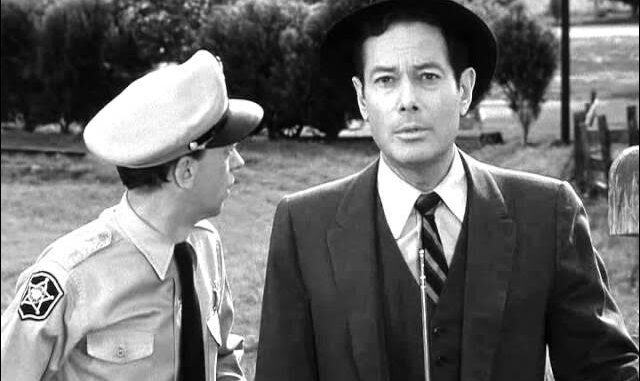
The Quiet Authority: How Andy Keeps Order with Wisdom Not Weapons
Mayberry. The very name conjures images of sun-dappled streets, front porch swings, and a tranquility that feels almost mythical in its simplicity. Yet, even in this halcyon haven, human foibles persist: petty squabbles, misguided schemes, and the occasional outright act of mischief. It falls to Sheriff Andy Taylor to maintain order, not through the imposing might of a badge and gun, but with a far more potent arsenal: his quiet wisdom. Andy’s authority is built not on fear, but on understanding, empathy, and an unwavering belief in the better nature of his fellow man, proving time and again that a well-placed word can be mightier than any weapon.
The most vivid contrast to Andy’s gentle approach is, ironically, found in his own deputy, Barney Fife. Armed with a single bullet (carried in his pocket, for safety), Barney embodies the conventional, often comical, idea of law enforcement: rules for rules' sake, an eagerness to cite regulations, and a tendency to jump to conclusions, often escalating situations where Andy would merely de-escalate. Barney brandishes the instruments of authority – his uniform, his whistle, his fervent proclamations – as a weapon, a means to impose order. Andy, on the other hand, disarms people with a knowing glance, a patient silence, or a well-timed, wry observation. He doesn’t need to shout to be heard, nor threaten to be obeyed. His presence alone carries a weight of calm reason that deflates tension far more effectively than any show of force.
Consider the recurring figure of Otis Campbell, Mayberry's lovable, if perpetually inebriated, town drunk. A less enlightened sheriff might view Otis as a public nuisance, a blot on the town's pristine image, to be met with stern lectures and the cold, unyielding bars of a jail cell. Andy, however, offers Otis a key to his cell, allowing him to let himself in when he feels the need, and out again when sober. This gesture, seemingly an abdication of authority, is in fact its profound opposite. It acknowledges Otis's humanity, his self-awareness, and his desire for dignity, even in his moments of weakness. Andy treats Otis with respect, not as a criminal to be punished, but as a member of the community needing a safe, non-judgmental space to recover. This wisdom-based approach fosters trust and a quiet understanding, far more effective than any punitive measure in encouraging Otis to manage his affliction.
Andy’s method extends beyond dealing with the town’s established characters; he applies it to outsiders and those who might genuinely pose a threat. When a traveling salesman attempts to swindle townsfolk, or a city slicker tries to pull a fast one, Andy rarely resorts to immediate arrest or heavy-handed justice. Instead, he orchestrates situations where the perpetrators are gently, sometimes humorously, led to expose their own deceit, or are made to feel so uncomfortable by Mayberry’s genuine good nature that they simply pack up and leave. He understands that true order isn’t about merely punishing wrongdoing, but about preventing it and, when possible, facilitating a change of heart or a quiet exit. He uses the community itself – its inherent honesty and moral compass – as a tool, allowing the light of Mayberry to expose the shadows, rather than needing to blast them away with force.
Even in his role as a father, Andy exemplifies his wisdom-over-weapons philosophy. When Opie errs, Andy doesn't resort to angry lectures or arbitrary punishments. Instead, he guides Opie towards understanding the consequences of his actions, allowing natural lessons to unfold. The iconic episode where Opie accidentally kills a bird mother and feels genuine remorse is a masterclass in this. Andy doesn't preach; he facilitates Opie's own journey of empathy and responsibility, leading to a profound lesson far more impactful than any spanking or grounding. He teaches not through dictates, but through living example and patient dialogue, fostering a moral code within Opie that will last a lifetime.
In the end, Andy Griffith’s Mayberry is more than just a nostalgic escape; it is a profound illustration of a radical, yet timeless, approach to maintaining order. Andy Taylor’s wisdom is his weapon, wielded with a gentle touch and an unwavering belief in humanity’s capacity for good. He proves that true authority doesn’t reside in the ability to coerce, but in the capacity to understand, to forgive, and to guide. In a world often quick to resort to force, Andy’s quiet authority serves as a powerful reminder that the strongest bonds of peace and order are forged not with steel, but with empathy, humor, and an abundance of good sense.